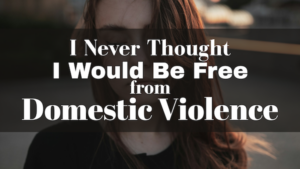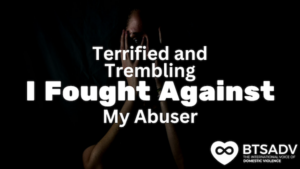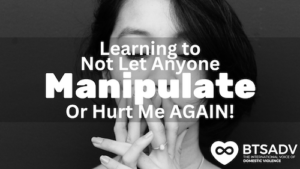What does it mean to be a survivor of an abusive relationship? How does one even begin to heal from such an experience?
Being survivors
Being a survivor means not just educating yourself on what you endured, but also standing up and speaking out to educate others. Reach out and speak out. It may be rather frightening at first to verbalize what you endured. Why? Because the abusers instilled a sense of shame within us. This shame can prevent us from speaking out. But as time moves forward, that shame can turn into a voice that can give you back your power.
A survivors healing is ongoing
When survivors traverse the rough waters of their healing journey, one thing will become clear: healing and recovery from an abusive experience will take time. And lots of it. You’ll find new ways and new avenues along your healing journey that will help you. You’ll come across fellow survivors who have been through similar things and maybe you will gain new insights into your experience.
No timetable
As survivors, we want to heal and get past our experience. Many survivors want to just leave it in the past. While that’s an enticing thought, there really is no set timetable to healing from an abusive relationship. There is no quick fix. Survivors will each heal at their own pace and each survivor heals differently. An experience that may take one survivor only year to heal, may take another survivor several years. For many survivors though, it is a lifetime of healing.
There is no rush to get through your healing journey. Take as long as you need and don’t let anyone tell you to “get over it” or that “you should just move on and leave it behind.” You are the captain of your recovery ship, so you get to say how you heal. You get to say what you do in order to heal.
What many outsiders don’t understand is that healing is not easy. It is so much more difficult than learning any new skill. Learning to heal takes patience and time. It takes patience because survivors will have plenty of ups and downs. It takes time because healing from an abusive situation is not an overnight thing. Healing is an up and down roller coaster ride. You will have many peaks and valleys, but as time moves forward, you will begin to have many more peaks than valleys.
What helps survivors in the healing journey
During the healing journey, there are many things that survivors can do to heal in a healthy and successful way. These things can bring survivors additional peace, insight, and strength to move forward.
- Therapy
Finding a good therapist is key to leading you down a good healing path. But how do you know who is a good therapist? The counselor must have knowledge in helping survivors of domestic violence. Survivors can reach out to local domestic violence centers or places of worship to help them heal or find other local resources.
- Journaling
Keeping a journal will help survivors track their emotional progress through their healing journey. If you are feeling particularly angry one day, write about that. If it takes you four or five pages of your journal to get it all out, then that’s what you must do.
- Hobbies or interests
Learning a new hobby or taking up a new interest can help survivors focus their energies on something positive. Perhaps learn to paint, or take up gardening. Maybe you’ve always wanted to learn to play an instrument.
- Music
For many survivors, just listening to empowering music can help lift them up. Make a playlist of songs that empower you and give you strength.
- Support
Finding other survivors to join forces with can truly aid in healing. Local support groups can lift survivors up in strength just by being in the same room. Even online support groups can provide that same feeling of belonging. Survivors will begin to understand that they aren’t alone.
There is no quick fix when it comes to healing from an abusive situation. Survivors will have good days and they will have bad days–and it’s okay to have those bad days. It just means that you are gaining new insights to help you along your journey. Remember, take as long as you need in your healing journey. You will heal and you will gain strength for having endured what you did.
If you or someone you know is in an abusive relationship, there is help. You can visit the Break the Silence Against Domestic Violence website at www.breakthesilencedv.org or chat with one of our support line advocates at 855-287-1777.









